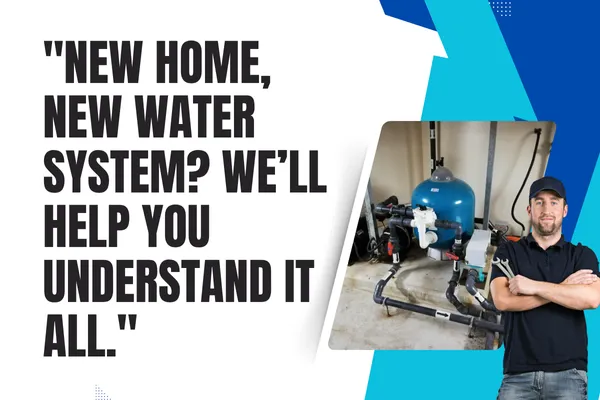
New to Well Water? Here’s What Every Florida Homeowner Should Know About Well Pumps
New to Well Water? Here’s What Every Florida Homeowner Should Know About Well Pumps
Just moved into a home with a private well?
Welcome to a whole new world of water—one that’s independent, eco-friendly, and potentially cost-saving… if you know how to care for it.
At All Around Water Services, we help new homeowners in Cape Coral and North Fort Myers understand their well systems, stay ahead of problems, and enjoy safe, steady water—without stress.
This quick guide will help you understand how your well pump works, what can go wrong, and how to keep it running strong for years to come.
How Does a Well Pump Work?
Your well pump is what pulls water from deep underground and delivers it to your home’s plumbing system. It usually sits inside the well casing (a submersible pump) or above ground (a jet pump).
The system includes:
A pump (to draw the water)
A pressure switch (to detect when water is needed)
A pressure tank (to maintain flow and pressure)
Plumbing and electrical lines
It’s basically your personal water utility—you own it and you control it.
Pros and Cons of Well Water
✅ No monthly water bills
✅ Access to natural, mineral-rich water
✅ Good for homes in rural or undeveloped areas
⚠️ Requires maintenance and monitoring
⚠️ More susceptible to pump or power issues
⚠️ Water quality varies depending on location
But with the right care, well water is clean, safe, and reliable.
Common Problems New Owners Run Into
If you're new to wells, keep an eye out for:
💧 Low or no water pressure – could mean pump, tank, or switch issues
🧊 Air in faucets – often signals a pressure tank problem or pump leak
🔌 Pump not running at all – may be electrical or control panel related
🔊 Strange sounds – humming, clicking, or rattling aren’t normal
💦 Sandy or cloudy water – may indicate sediment in the well or pump damage
What You Can Do as a Homeowner
Learn where your well and pump are located
Know how to shut it off in an emergency.Check your pressure gauge occasionally
Look for erratic spikes or drops.Schedule annual maintenance
Our techs can check everything before it becomes a bigger problem.Test your water quality regularly
Especially if you have kids, elderly family members, or a shallow well.
How We Help New Homeowners
🧪 FREE Water Testing – Know what’s in your water
🔧 Complete System Inspections – Pump, tank, switch, and wiring
🚨 Emergency Repairs – When the water stops, we move fast
🔁 Pump Upgrades – Modern, efficient systems that last longer
🧰 Preventive Plans – Keep your water flowing without worry
Who This Is For
New homeowners unfamiliar with well water systems
First-time buyers in Cape Coral or North Fort Myers
Anyone experiencing low pressure or odd water behavior
Families wanting safe, reliable water they can trust
Don’t Guess. Get Clarity About Your Well Water System.
Owning a well isn’t scary—when you have the right team by your side.
At All Around Water Services, we make it easy for new homeowners to understand, maintain, and trust their water supply.
👉 Book a well system inspection or free water test today at allaroundwater.com
We’ll walk you through it—step by step. Reliable water starts here.






Facebook
Instagram
Youtube